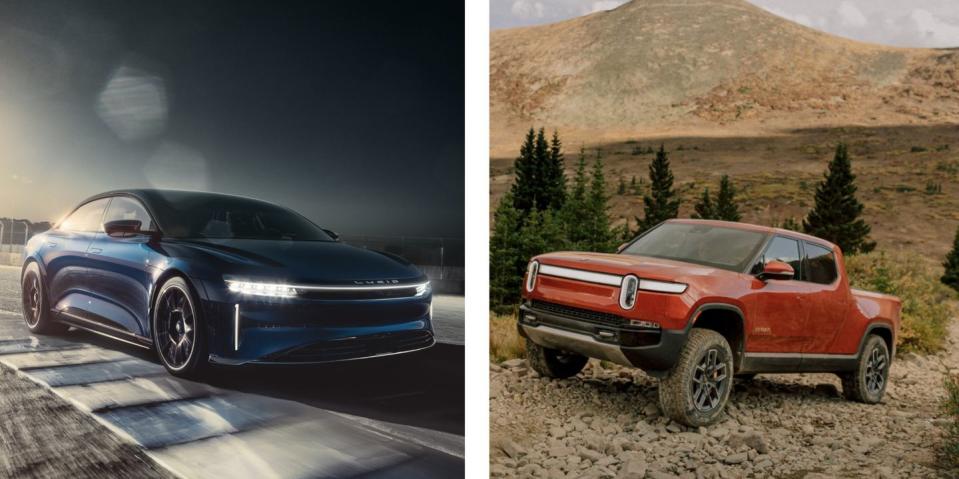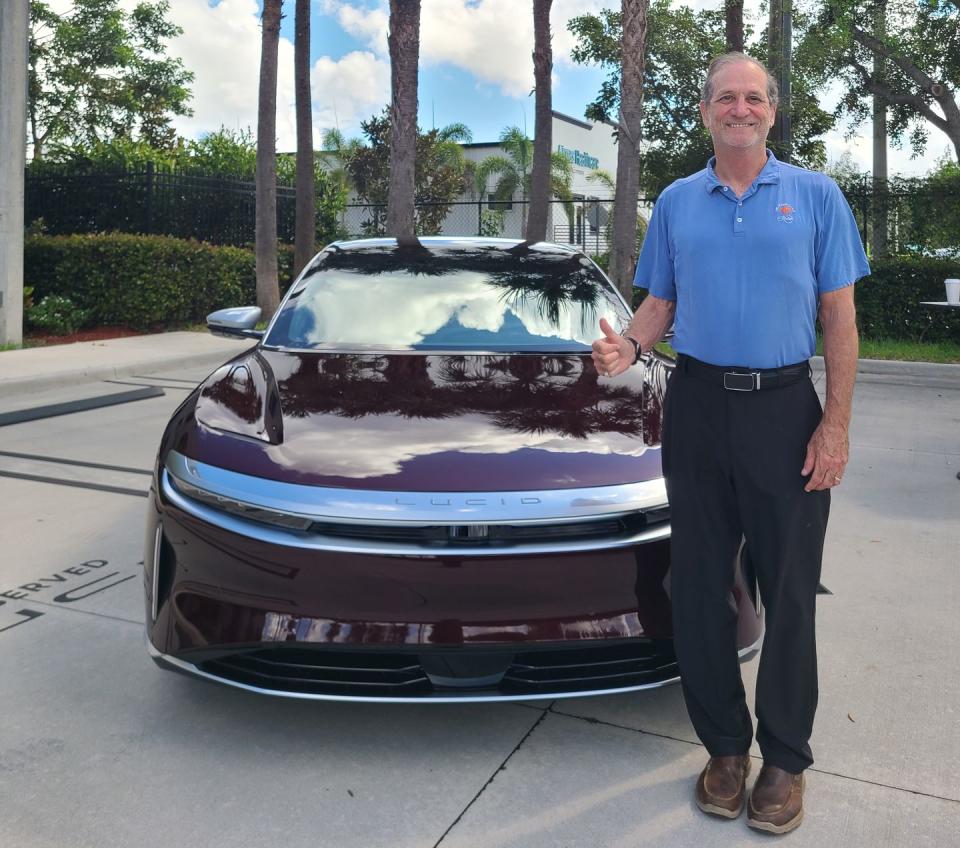Some Lucid and Rivian EV Owners Reporting Problems—Some Serious

Owners of Lucid Motors and Rivian EVs have reported problems with their vehicles, both to NHTSA as well as online in owners’ forums.
The problems range from seats that move on their own to complete bricking.
Despite the problems, most owners express positive experiences with their vehicles—when they work correctly.
In an October complaint to the National Highway Traffic Safety Administration (NHTSA) a San Diego-based owner of an high-end Lucid Air electric car described a problem: “Vehicle sometimes drives in the opposite [emphasis in the original] of selected gear….Vehicle moves forward when in reverse….We could have easily hit a pedestrian.” He documented the problem in a YouTube video.
The owner said he’d notified Lucid of the problem through “all channels,” but had not heard back—though the situation may have been subsequently resolved.
Lucid and Rivian, both California-based but with factories elsewhere, are the two EV startups that many analysts think have the best chance of “doing a Tesla” and becoming established players in the international marketplace. It’s hard to do—before Tesla, there’d been no successful launches of a major American automaker since Chrysler in the 1920s. Both Tesla and Rivian have experienced bumps, including slow ramp-ups that are affected by the supply chain woes that have rocked the whole industry.
And customers have experienced glitches. There are 10 complaints at the NHTSA site for the Rivian R1T truck, but none for the R1S SUV. The R1S has two recalls, and the R1T three. The Lucid Air has three recalls and nine complaints.
Obviously, visits to just about any forum that track new car ownership will find problems, and all new auto manufacturers go through start-up woes. But some of the issues are far more than cosmetic.
A Lucid Air customer in Wright City, Missouri, informed NHTSA that the car’s seat “moved into the full forward and full-forward tilt position without warning, pinning my knees against the lower dash and my chest against the steering wheel.” The owner said that the malfunction fortunately happened in the garage, adding that if had happened on the highway, “I would not have been able to control the car. Car is currently not drivable.”
Another owner of a 2022 Lucid in Ambler, Pennsylvania, told NHTSA that while reversing out of his driveway, “the vehicle lost motive power and stalled.” The “Drive System Fault” message was displayed, and the customer could not restart the vehicle. After contacting Lucid, the system was reset and the car restarted, but the failure reoccurred. The car had 897 miles on its odometer.
In Rochester, Minnesota, an owner reported to NHTSA that the Lucid “lost all ability to move forward, except for a very weak crawl of one or two miles per hour. The car is with the manufacturer at this point.” The situation developed without warning in traffic. A reboot did not solve the problem, and the car was transported nearly 300 miles to the Chicago service center. The car operated normally before this problem developed.
The Lucid Owners Forum adds more issues. An owner named Lady V says she’s had 17 charging glitches, 14 of them during long trips of between 100 and 1000 miles. She said the vehicle had been to service centers in Millbrae and Torrance in California, Scottsdale in Arizona, and Seattle.

Chip Caldwell, a Tennessee resident who is chairman of Florida-based Caldwell Butler 2, describes having to have his “brand-new Grand Touring” model towed twice to the West Palm Beach, Florida, service center. In a telephone interview, Caldwell said that his car was having trouble both taking and retaining a charge. “I have documented an average of 55 percent of the range that the car tells me I have,” he said. “Because the battery is inefficient, if it says I have 350 miles, I actually have less than 200.”
Caldwell also says that fast charging his car took two hours and 35 minutes, when it should have taken 9.3 minutes, according to Lucid data. Like many Lucid owners, Caldwell says he loves the car when it’s working properly. “It’s a beautiful car,” he said. “Maybe two years down the road, the company will have ironed out the problems.”
Caldwell says Lucid’s customer representatives are great and helped him secure a rental car, but the service is an issue—his Air sat at a service center for more than two months. On December 29, he was told by the company that nothing wrong was found.
On February 10, Caldwell got the car back from the service center, but he insists he’s still having problems. He reports issues connecting to fast chargers, and a continuing inability to get more than 150 miles of range per charge.

 Yahoo Autos
Yahoo Autos 